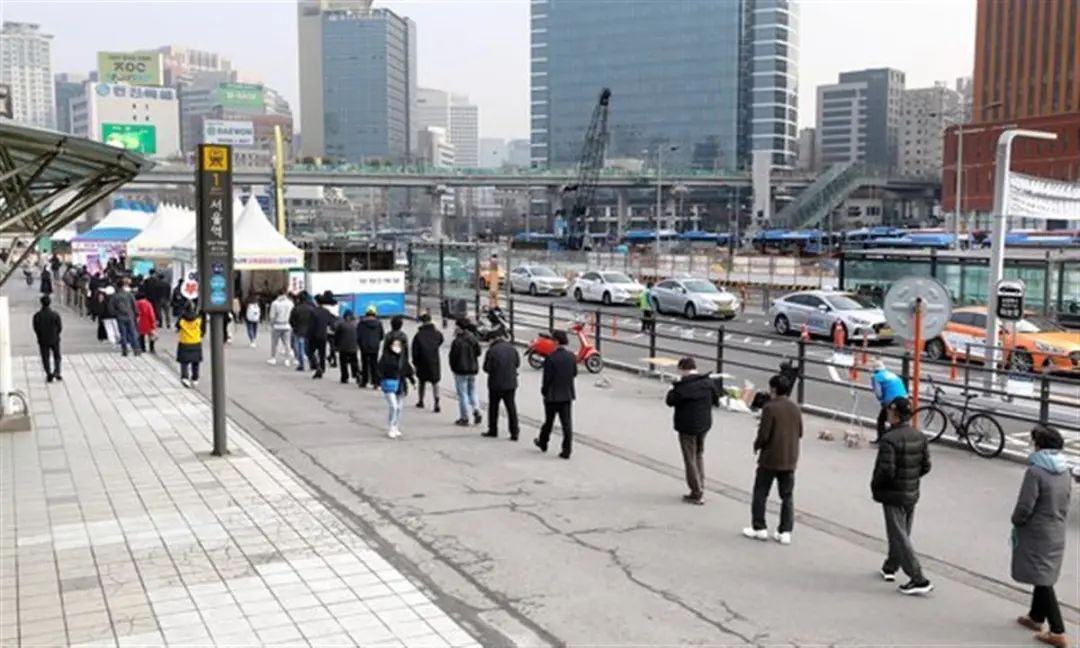The number of new confirmed cases of new crown in South Korea in a single day surged, surpassing 620,000 for the first time, ranking first in the world. The South Korean government still plans to relax epidemic prevention measures. Experts say that the current relaxation may lead to the spread of the epidemic.

Seoul citizens wait for nucleic acid testing, source: Joongang Daily
According to South Korea’s Joongang Daily , South Korea’s Central Disaster Safety Countermeasures Headquarters announced that as of 0:00 on March 17, the number of newly confirmed cases in South Korea was 621,328, the vast majority of which were local cases, and only 62 imported from abroad.
In addition, the number of deaths from the new crown reached 429 that day, which is the first time that the number of deaths in a single day has exceeded 400 since the outbreak of the epidemic.
As of the 17th, the cumulative number of confirmed cases in South Korea exceeded 8 million, reaching 8,255,922.
According to the “Guardian” report on the 17th, South Korea’s Center for Disease Control and Prevention said that the surge in new cases was brought about by the highly contagious “Omicron” variant.
According to Yonhap News Agency, the surge in the number of newly confirmed cases on the 17th was attributed to the relaxation of testing standards. Before the 14th, those who tested positive for the new crown must be confirmed by nucleic acid testing, but from the 14th, the positive result will be counted as a confirmed case of the new crown. In addition, the reported data on the 17th also included the number of underreported cases from the previous day.
Despite the sharp increase in daily new numbers, the government is also discussing further easing of epidemic prevention restrictions. South Korea has now delayed restaurant hours until 11 p.m., stopped mandatory vaccine passes, and plans to lift quarantines for vaccinated overseas travelers.
Experts pointed out that when the government is at the peak of the epidemic, relaxation of epidemic prevention measures may lead to the further spread of the epidemic. Ma Shang-hyuk, vice president of the Korea Society of Vaccines, said: “Due to the epidemic, South Korea is in a state of anarchy, and everyone must learn to support themselves.”
The South Korean government is expected to decide whether to relax restrictions as early as the 18th.
South Korea has adopted active epidemic prevention measures to control the spread of the epidemic, such as private gatherings of no more than 6 people, and regulations on wearing masks in public indoor and outdoor spaces.
Experts say South Korea has largely limited deaths and severe cases through widespread vaccination. 86.6% of South Korea’s population is said to be fully vaccinated, with nearly 63% receiving booster shots.
On the 16th, Sun Ying-lai, an official of the South Korean Health Ministry, said that the government’s analysis of about 141,000 “Omicron” cases in the past year showed that there were no deaths among people under the age of 60 who received booster shots.
Source: Jimu News